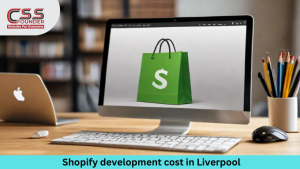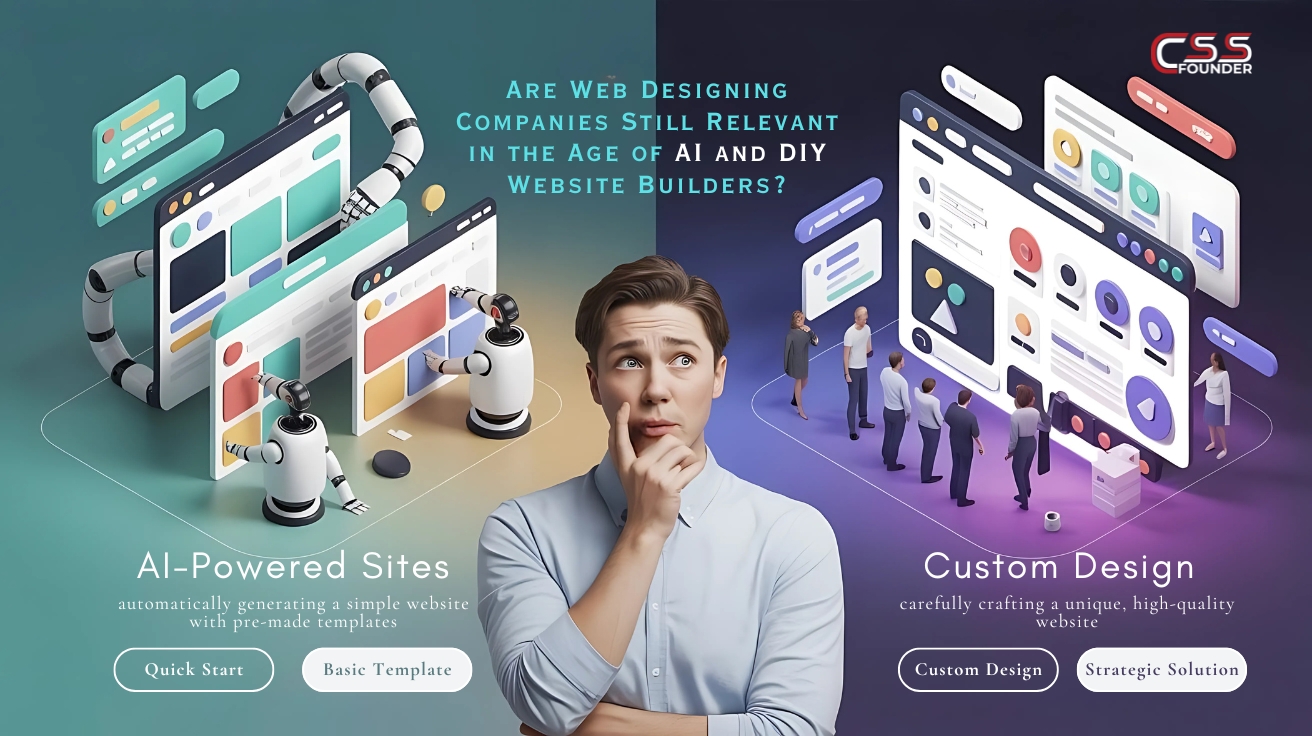As the ecommerce landscape continues to evolve, businesses in Liverpool are increasingly turning to Shopify as their preferred platform for online retail. But what exactly does it cost to develop a Shopify store in this vibrant city? This article delves into the various factors that influence Shopify development costs in Liverpool, providing valuable insights for businesses looking to establish or upgrade their online presence.

Average Shopify Development Costs in Liverpool
While costs can vary widely depending on the factors mentioned above, here’s a general breakdown of what you might expect to pay for Shopify development in Liverpool:
-
Basic Shopify Store: £3,000 £7,000
This typically includes a customized premade theme, basic product setup, and essential features. It’s suitable for small businesses or those just starting out in ecommerce.
-
Midrange Shopify Store: £7,000 £15,000
At this level, you can expect a more customized design, additional features, and some thirdparty integrations. This is ideal for growing businesses with more complex needs.
-
Advanced Shopify Store: £15,000 £30,000+
For larger businesses or those with specific requirements, advanced Shopify stores offer fully custom designs, complex functionalities, and extensive integrations. The cost can go significantly higher depending on the project’s scope.
-
Ongoing Maintenance: £100 £500+ per month
Many Liverpool developers offer monthly maintenance packages to ensure your store remains updated, secure, and optimized.
Understanding Shopify and Its Appeal
Before we break down the costs, it’s essential to understand why Shopify has become so popular among Liverpool businesses. Shopify is a userfriendly ecommerce platform that allows merchants to set up online stores with relative ease. Its flexibility, scalability, and robust feature set make it an attractive option for businesses of all sizes, from startups to established enterprises.
Factors Influencing Shopify Development Costs in Liverpool
-
Store Complexity and Size
The complexity and size of your Shopify store significantly impact the overall development cost. A simple store with a few products and basic features will naturally cost less than a large, multicategory store with advanced functionalities. In Liverpool, developers typically charge more for complex projects that require extensive customization and integration work.
-
Custom Design vs. Premade Themes
Shopify offers a range of premade themes, but many businesses opt for custom designs to stand out in the competitive Liverpool market. Custom designs require more time and expertise, thus increasing the overall cost. However, they offer unique branding opportunities and can be tailored to meet specific business needs.
-
Functionality and Features
The features you want to incorporate into your Shopify store will greatly affect the development cost. Basic features like product listings and a shopping cart are standard, but advanced functionalities such as custom product configurators, advanced search options, or integration with local Liverpoolbased services may require additional development work and increase costs.
-
Third-party Integrations
Many Liverpool businesses require integration with various thirdparty services, such as local payment gateways, inventory management systems, or shipping providers. These integrations can add to the overall development cost but are often crucial for smooth business operations.
-
Developer Expertise and Rates
The expertise level of Shopify developers in Liverpool varies, as does their pricing. More experienced developers typically charge higher rates but can often complete projects more efficiently and with higher quality results. It’s important to balance cost with expertise when choosing a developer.
-
Ongoing Maintenance and Support
While not strictly part of the initial development cost, it’s crucial to consider ongoing maintenance and support expenses. Many Liverpoolbased Shopify developers offer maintenance packages, which can be a worthwhile investment to keep your store running smoothly.
Cost Saving Tips for Shopify Development in Liverpool
-
Clearly Define Your Requirements
- Having a clear vision of what you need is crucial for efficient and cost effective Shopify development. Here’s how to approach this:
- Conduct a thorough business analysis: Understand your business model, target audience, and unique selling propositions. This will help you identify the specific features and functionalities your Shopify store needs.
- Create detailed user personas: Develop profiles of your typical customers in Liverpool. Consider their shopping habits, preferences, and pain points. This will guide your design and feature choices.
- Map out the customer journey: Outline each step a customer takes from landing on your site to completing a purchase. This will help identify necessary features and potential bottlenecks.
- List specific features and functionalities: Be as detailed as possible. For example, instead of just “product filtering,” specify “filtering by size, color, and price range.”
- Prioritize your requirements: Use a system like the MoSCoW method (Must have, Should have, Could have, Won’t have) to categorize your requirements.
- Create a detailed project brief: This should include your business goals, target audience, design preferences, required features, and any specific Liverpool market considerations.
- Use visual aids: Create wireframes or mockups to illustrate your vision. Tools like Sketch, Figma, or even simple handdrawn sketches can be helpful.
- Set clear milestones and deadlines: This helps manage the project timeline and budget more effectively.
- By clearly defining your requirements upfront, you can avoid costly mid project changes and ensure that developers can accurately estimate the time and resources needed.
-
Start with a Premade Theme
- Using a premade theme can significantly reduce development costs while still providing a professional look. Here’s how to make the most of this approach:
- Research Shopify’s theme store: Shopify offers a wide range of themes designed for different industries and styles. Look for themes that align with your brand aesthetic and industry norms in Liverpool.
- Consider paid themes: While there are free options, paid themes often offer more features, better support, and regular updates. They can be a costeffective middle ground between free themes and custom design.
- Evaluate customization options: Look for themes that offer extensive customization options. The ability to easily modify colors, fonts, layouts, and sections can help you achieve a unique look without custom coding.
- Check for responsive design: Ensure the theme is fully responsive and works well on all devices. Mobile shopping is increasingly popular in Liverpool, so this is crucial.
- Look for themes with builtin features: Some themes come with advanced features like mega menus, product quick views, or Instagram feeds. Choosing a theme with builtin features you need can save on development costs.
- Consider local preferences: Some themes may be particularly wellsuited to the Liverpool market. For example, themes that prominently feature shipping information or local payment methods might be beneficial.
- Read reviews and check demo stores: Before choosing a theme, read user reviews and check demo stores to see how the theme performs in realworld scenarios.
- Remember, a skilled Shopify developer can significantly customize a premade theme, giving you a unique look without the full cost of custom design.
-
Prioritize Features
Feature prioritization is key to managing development costs effectively. Here’s a strategic approach:
- Identify core ecommerce features: Focus first on the essentials like product listings, shopping cart, secure checkout, and basic search functionality.
Use the MoSCoW method: Categorize your features:
- Musthave: Critical for launch (e.g., secure payment processing)
- Shouldhave: Important but not critical (e.g., product reviews)
- Couldhave: Desirable but not necessary (e.g., wishlist functionality)
- Won’thave: Not planned for this phase
- Consider Liverpool specific features: Prioritize features that cater to local customer preferences, such as specific payment methods popular in Liverpool or integration with local delivery services.
- Plan for phased implementation: Start with your must have features for launch, then plan to add should have and could have features in future updates.
- Leverage Shopify apps: Many features can be added through Shopify’s app store, which is often more cost effective than custom development. Research available apps before deciding to custom build a feature.
- Focus on performance: Prioritize features that enhance site speed and user experience, as these directly impact conversions and SEO.
- Consider scalability: Choose solutions that can grow with your business to avoid costly overhauls later.
- By focusing on essential features initially, you can launch your store faster and at a lower cost, then reinvest profits into further development.
-
Choose the Right Developer
- Selecting the right Shopify developer in Liverpool is crucial for costeffective development:
- Look for Shopify Partners: Developers certified by Shopify have proven expertise with the platform. They’re often more efficient and uptodate with best practices.
- Check portfolios: Look for developers with experience in your industry and with projects similar to yours. Pay attention to the design quality, functionality, and performance of their previous work.
- Read reviews and testimonials: Pay special attention to feedback from other Liverpool businesses. Look for developers who understand the local market and customer preferences.
- Evaluate technical skills: Ensure the developer has expertise in Liquid (Shopify’s templating language), JavaScript, CSS, and responsive design. Knowledge of SEO best practices is also valuable.
- Consider communication style: Choose a developer who communicates clearly and understands your vision. Good communication can prevent misunderstandings and costly revisions.
- Compare quotes: Get detailed quotes from multiple developers. Look beyond the bottom line to understand what’s included in each quote.
- Ask about postlaunch support: Developers who offer ongoing support can be valuable for longterm success. Discuss their support packages and response times.
- Consider local vs. remote: While remote work is common, a local Liverpool developer might offer advantages in terms of market knowledge and facetoface meetings.
- Remember, a skilled developer may charge more per hour but can often complete the project more efficiently and with fewer issues, potentially saving money in the long run.
-
Consider Long term Costs
- Thinking long term can lead to significant cost savings:
- Invest in quality coding: Wellstructured, clean code is easier to maintain and update. This reduces future development costs and minimizes potential issues.
- Plan for scalability: Choose solutions that can grow with your business. This might mean opting for more robust hosting plans or selecting themes and apps that can handle increased traffic and inventory.
- Budget for ongoing maintenance: Regular updates are crucial for security and performance. Factor in the cost of ongoing maintenance when planning your budget.
- Consider future integrations: Choose a development approach that allows for easy integration of new features or third party services. This futureproofs your store and reduces costs for additions later.
- Evaluate hosting options: While Shopify handles basic hosting, consider if you need additional resources for high traffic or complex features. Balance the cost of upgraded hosting against potential performance benefits.
- Invest in training: Having your team trained to manage basic store operations can reduce reliance on external support. This includes tasks like updating products, managing orders, and basic content changes.
- Plan for regular audits: Schedule periodic reviews of your store’s performance, SEO, and user experience. Identifying and addressing issues early can prevent costly problems down the line.
- Consider the total cost of ownership: Factor in all costs over time, including development, hosting, apps, maintenance, and potential upgrades.
- By considering these longterm factors, you can avoid hidden costs and ensure your Shopify store remains costeffective and competitive in the Liverpool market over time.
- Implementing these detailed strategies can help Liverpool businesses develop robust, costeffective Shopify stores that meet their immediate needs and support longterm growth. The key is to balance initial costs with longterm value, creating an ecommerce solution that’s both economical and scalable.
The Value of Professional Shopify Development
While it’s possible to set up a basic Shopify store yourself, professional development offers numerous benefits:
- Time Savings: Developers can set up your store much faster than you could on your own.
- Expert Knowledge: Professional developers understand Shopify’s best practices and can optimize your store for performance and SEO.
- Custom Solutions: Developers can create custom features tailored to your specific business needs.
- Local Market Understanding: Liverpoolbased developers often have insights into the local ecommerce landscape.
Conclusion
The cost of Shopify development in Liverpool can vary widely, typically ranging from £3,000 for basic stores to £30,000+ for advanced, custom solutions. While these costs may seem significant, investing in professional Shopify development can provide immense value, helping your business establish a strong online presence and compete effectively in the digital marketplace.
When budgeting for your Shopify project, consider not just the initial development costs but also ongoing expenses for maintenance and updates. By carefully assessing your needs, choosing the right developer, and planning for the long term, you can create a successful and costeffective Shopify store that serves your Liverpool business well into the future.





.png)


